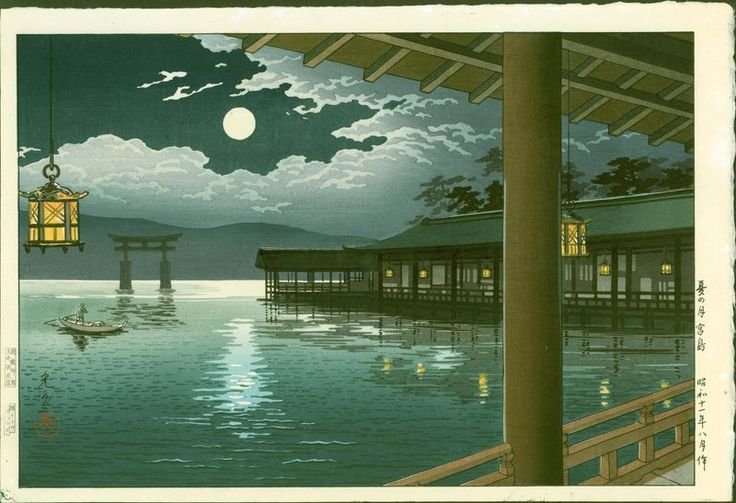中々にひとりあればぞ月を友
because
I'm all alone
the moon is my friend
—Buson
(Tr. David LaSpina)
nakanaka ni hitori areba zo tsuki o tomo

(woodblock print by Tsuchiya Koitsu)
Buson is not talking about loneliness here; that is, being alone is not a negative thing to him. Rather, it is because he is alone that he's able to become so intimate and familar with the moon. This is an idea that has been revisited so many times in haiku and elsewhere that I'm sure most of you are familar with it. A hundred fifty years hence, half way around the world. Henry David Thoreau would be expressing the same ideas in Walden, writing:
I find it wholesome to be alone the greater part of the time. To be in company, even with the best, is soon wearisome and dissipating. I love to be alone. I never found the companion that was so companionable as solitude.
Words I'm sure Buson would have agreed with.
Don't miss the other great haiku in the Haiku of Japan series!
- Traveling to the inn
- Childless Woman
- Old Dancing Butterfly
- Seeing the Moon
- Checking the Scarecrow
- Skill of Insects
- The Spider Lilies
- A Thousand Green Mountains
- Falling Lead Enlightenment
- Lonely Night
- Her Day Off
- Autumn Crow
- Faint Footprints
- Alone on the Road
- Autumn Begins
- Early Morning Moon Viewing
- Mistaken for a Scarecrow
- The Galactic River
- The Love of Cats
- Autumn Waterfall
- The Thief and the Moon
- My Frozen Balls
- Saké Waves
❦
 |
David LaSpina is an American photographer and translator lost in Japan, trying to capture the beauty of this country one photo at a time and searching for the perfect haiku. He blogs here and at laspina.org. Write him on Twitter or Mastodon. |
